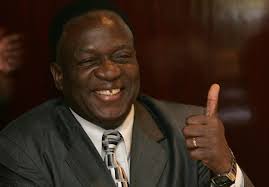Reports indicate that police in Zimbabwe have arrested many trade union members ahead of a planned protest on Thursday in the capital over the worst economic crisis in a decade, particularly the recent hike in taxes by the government.
According to some of the country’s Human Rights lawyers, the state police arrested Zimbabwe Congress of Trade Unions members in Harare and the cities of Mutare and Masvingo.
This is even as online news report stated that there was a heavy police presence in Harare after the government banned the protest, citing an ongoing cholera outbreak.
A court is expected to hear a case challenging the ban later today.
It would be recalled that BRTNews.ng reported on Wednesday that the Zimbabwean President, Emmerson Mnangagwa, had urged citizens to bear the pain of newly introduced taxation and other economic reforms, saying the fiscal measures are necessary to revive the nation’s economy.
The country’s Finance Minister, Mthuli Ncube, had on Monday, October 1 announced a two percent tax to be levied on mobile and card payments and bank transfers above $10 with exceptions for foreign payments and transfer of government funds.
The announcement triggered sporadic protests by individuals and corporate entities, who complained that government had not demonstrated accountability in its tax collections and previous sacrifices demanded of them.
Mnangagwa explained that government was taking the lead by cutting back on unnecessary spending, adding that the only way to a stronger economy is to restructure, rebuild and reform.
According to the minister, the new tax from which government is expected to rake nearly $2 billion annually would facilitate the execution of projects in the roads, health and education sectors.
According to news report, the impact of the fiscal measures was felt with fuel shortages, and a hike in prices of basic goods and medical drugs.
Mnangagwa noted the difficulties faced by the citizens and promised that government would work to minimise the negative impact of the new measures on their socio-economic wellbeing.
He said: We are already taking the lead by cutting back on unnecessary spending. The only way to a stronger economy is to restructure, rebuild and reform.”
The President promised further that government would have to take ‘painful measures’ in order to compensate for the stagnation of the economy over the last two decades






